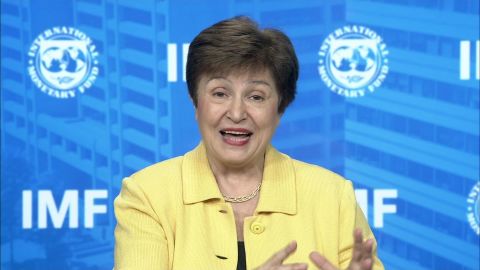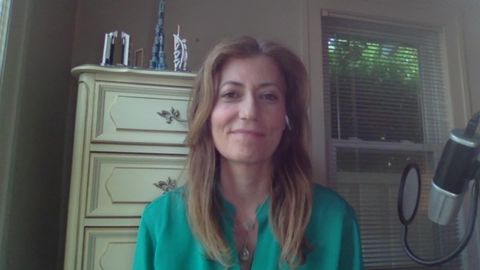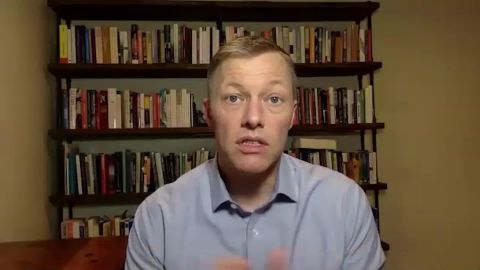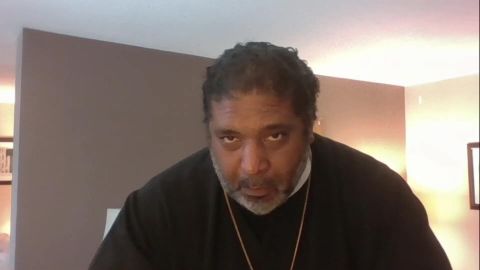Read Transcript EXPAND
CHRISTIANE AMANPOUR: Do you think, you know, despite the streets and the 2.5 million who joined your virtual march, that there is a political will where it’s needed to actually make this shift, because it is a shift in distributional resources?
REVEREND WILLIAM J. BARBER II, CO-CHAIR, THE POOR PEOPLE’S CAMPAIGN: It will have to be where we’re not only be in the streets, but we’re going to have to be in the voting booth. And that’s why we’re also building power. We’re in a moment where the people are going to have to change the political atmosphere, just like people that went across the bridge. None of the politicians wanted to deal with voting rights. The president didn’t want to deal with it. But the people forced a change in the political context, and that wasn’t even in an election year. We have a greater possibility because we’re in the middle of an election year. Now, it doesn’t mean go vote in November and then leave and go home, it means that we have to be our power, and we have to show people what we did on Saturday. It wasn’t people talking about the poor. We’ve got thousands of texts back that said, we saw ourselves. We said, look, America, you must see yourself. These five interlocking injustices are affecting a white farmer couple in Kansas just like it’s affecting coal miners in Kentucky, just like it’s affecting fast workers in North Carolina and people down in Delta, Mississippi. And the more we show to the people, the possibility of change, now, the politicians are going to have to understand what this moment is. They’re still playing with it. They don’t understand yet that this is the moment, and they better. Because if we can’t fix these issues in the midst of a pandemic, in the midst of the poverty that’s coming, that’s going to be adding another 15,000 people in unemployment, if we can’t face these issues of raising living wages and getting health care and dealing with poverty, God help us as a country.
This is the moment. This is the moment that we must build this movement. And what we’re seeing is we’re not going anywhere. We’re going to be at the voting booth. Whoever wins, we’re going to be still in their face. We’re going to keep pushing. Because what other choice do we have? As one guy said on Saturday, our backs are against the wall. We have no other choice but to fight. And then lastly, we’ve got to decide in this country, do we believe in our first declaration, and that is life. Because every regressive policy, denial of health care, denial of living wages, even denial of voting rights has what I call a death measurement. People die when we don’t have health care. People die when they don’t have living wages. People dies when we have voter suppression, and people use voter suppression to get in office. And then once they get in office, they protect corporate polluters and they deny health care and they block living wages. If we’re going to deal with the death of George Floyd, as we should, we’re going to have to deal with the deaths we don’t see on camera but happen every day to the tune of 700 poor people dying every day from poverty. We have to deal with the death measurement, otherwise we don’t mean what we say when we say we are for life, liberty and the pursuit of happiness.
About This Episode EXPAND
The managing director of the International Monetary Fund joins Christiane for an exclusive interview. The Reverend William Barber discusses structural racism and poverty. Anne Milgram discusses President Trump’s dismissal of SDNY Attorney Geoffrey Berman. Princeton sociologist Matthew Desmond explains how COVID-19 could exacerbate the eviction crisis in the United States.
LEARN MORE



